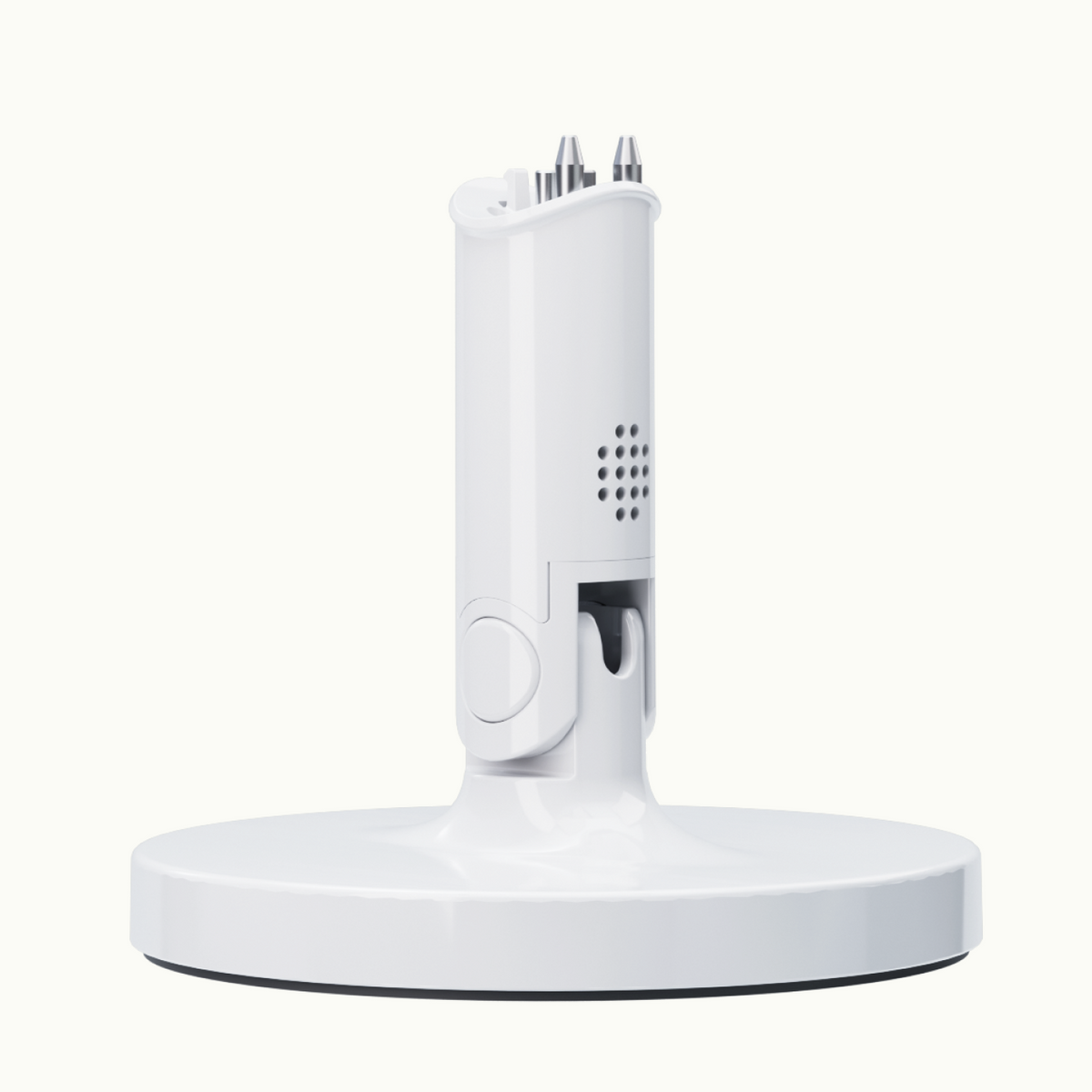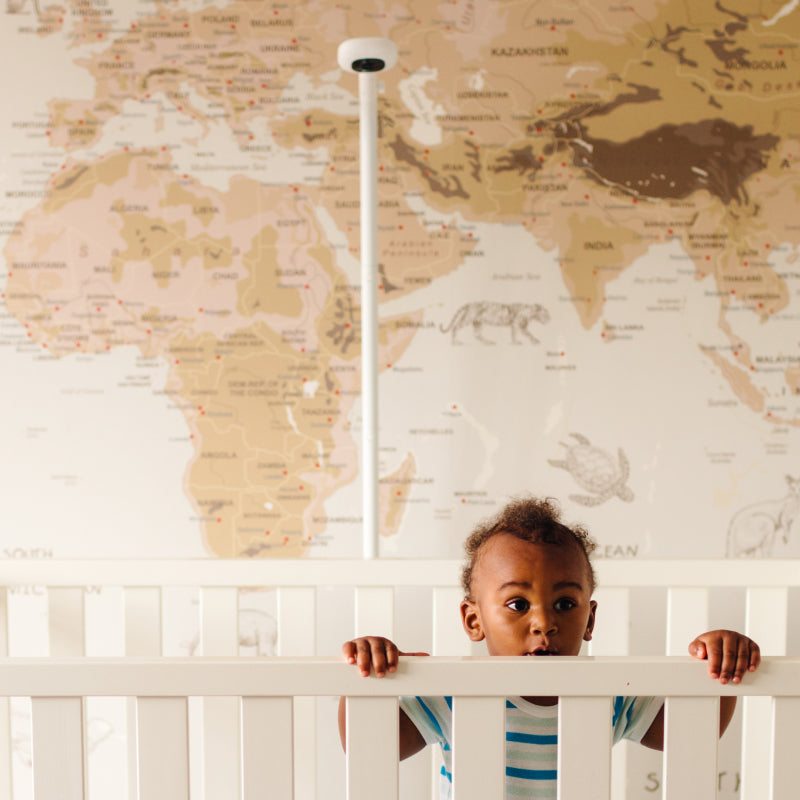From cradling your baby to sleep each night to eagerly anticipating their first steps, if you’re raising your child alongside a partner, co-parent, relative, or friend, shared goals and teamwork are key ingredients to success.
Just like establishing healthy teamwork on a soccer team or in the workplace, fostering synergy between parents and caregivers takes time. It requires patience, empathy, and—did we mention patience?
Whether you're navigating the joys of new parenthood or simply want to strengthen your relationship, you're in the right place. Read on for ideas and advice on how to parent as a team and help your parenting village work together harmoniously.
What does teamwork mean when it comes to parenting?
No matter what your family structure looks like, creating a loving and nurturing environment for your baby is a top priority. Parenting as a team involves both parents collaborating to address the mental, physical, social, and emotional needs of their little one.
A good, teamwork-style relationship with your partner typically includes the following:
- Making collaborative decisions
- Supporting one another
- Sharing caregiving duties (changing diapers, washing baby clothes, babysitting, etc.)
- Researching and crowdsourcing information together
- Sharing the burden of tough moments
- Celebrating wins together
The challenges of parenting as a team
If you’re parenting with a partner, you might assume that if you and your partner are on the same page before parenthood, that bond will only improve once your sweet baby is in your arms. So is teamwork something you really have to work on?
While bringing a tiny human into the world can certainly change the dynamics in your relationship for the better, it may well introduce new obstacles as well, including:
- Emotional shifts. Navigating parenthood with a romantic partner can pose challenges to maintaining physical and emotional intimacy. You may feel less close to your partner or experience other changes in emotions. If you are a new parent, you are also likely facing serious sleep deprivation, which can heighten emotions.
- Change in communication patterns. When you welcome a baby into your relationship, it's typical for your communication methods to shift. The blend of sleep deprivation and disruptions to your usual routine can result in less frequent communication between you and your partner, which can lead to misunderstandings and heightened emotional tensions.
- Evolving connections between the important people in your life. From managing time constraints to adjusting to your new roles as caregivers, the relationship between your partner, family, and friends may change and feel like a delicate balancing act.
How to effectively parent as a team
Navigating through potential challenges might seem daunting, but with a bit of research and a commitment to nurturing a healthy relationship after having a baby, you can enhance your partnership. The result? A stronger connection with your partner and the chance to model respectful communication and teamwork to your little one.
Here, some tips on how to parent as a team and strengthen the foundation of your family unit:
- Keep communication lines open. Designate specific times for conflict resolution and discuss anything on your mind with your partner, co-parent, or teammates, be it a request for an extra hour of sleep or sharing a new sleep training method you'd like to try. Make no topic off-limits.
- Divide responsibilities. Take the time to determine each person's parenting duties based on individual strengths and availability. This not only fosters a sense of teamwork but also reduces the likelihood of lingering resentment, and allows all parties to get much-needed time to themselves.
- Respect one another’s parenting style. Given that you and other co-parents may come from different backgrounds, it's natural to develop different parenting styles. Strive to understand the reasons behind their decisions, ask questions, and find compromises where possible.
- Celebrate your accomplishments. From mastering the art of the swaddle to becoming the official decoder of baby cries, no victory is too big or small to celebrate. So, pat your partner on the back and give them credit where it’s due—and don't forget to give yourself the same well-deserved praise!
- Spend quality time together. A crucial aspect of maintaining a strong parenting bond involves setting aside time for you both to enjoy each other's company. And anything goes, whether it's snuggling up to watch a movie, grabbing lunch at your favorite spot, or any other date ideas with a baby you might have to help spice up your relationship.
- Take care of your mental health. This is a period of incredible transition in all aspects of your life, and it’s very common for parents to experience mental health challenges. Commonly known as postpartum anxiety or depression, Perinatal mood and anxiety disorders (PMADs) can impact both mothers and fathers, and can be heightened by lack of sleep. Don’t be afraid to ask for help from your partner, take time for yourself, or work together to access a mental health provider.
Synchronize on your baby’s sleep with Nanit
Parenting as a team requires mindfulness and consistency on all fronts, but the benefits for you, your co-parent(s), and your baby are extensive. One factor of parenting that you can both agree on? Ensuring your baby always sleeps safely and soundly.
That’s where Nanit comes in. With the Nanit Pro Camera and Breathing Wear working in tandem, you can rest assured, knowing that you can easily track your baby’s sleep patterns without the hassle and inconvenience of any sensors, electronics, or radars. Nanit isa seamless way to integrate teamwork into your parenting experience.
The most awarded, connected wifi baby monitor with camera and app on the market. Use your Nanit data to support your baby's wellness, and get your best rest.
LIMITED TIME OFFER! Get a free Sound + Light Machine with a full-priced Pro Camera purchase! Add both items to your cart and enter code FREESOUND at checkout
Key takeaways
- Collaboration and Patience are Key. Parenting teamwork involves collaborating and addressing the mental, physical, social, and emotional needs of the child.
- Obstacles are Expected (and Normal). As a new parent, obstacles, such as emotional shifts and changes in communications, can occur.
- Communicate, Allocate, and Celebrate. To effectively parent as a team, maintain clear communication, allocate responsibilities, celebrate your accomplishments, and spend quality time together.
Sources
Raising Children. Raising children as a team: why it’s important. https://raisingchildren.net.au/for-professionals/mental-health-resources/parent-mental-health-and-wellbeing/parent-relationships-and-teamwork
Marriage. How to Create Teamwork in Your Marriage and Relationships. https://www.marriage.com/advice/relationship/teamwork-in-your-marriage/
Better Help. Understanding the teamwork definition in relationships. https://www.betterhelp.com/advice/teamwork/understanding-the-teamwork-definition-in-relationships/





